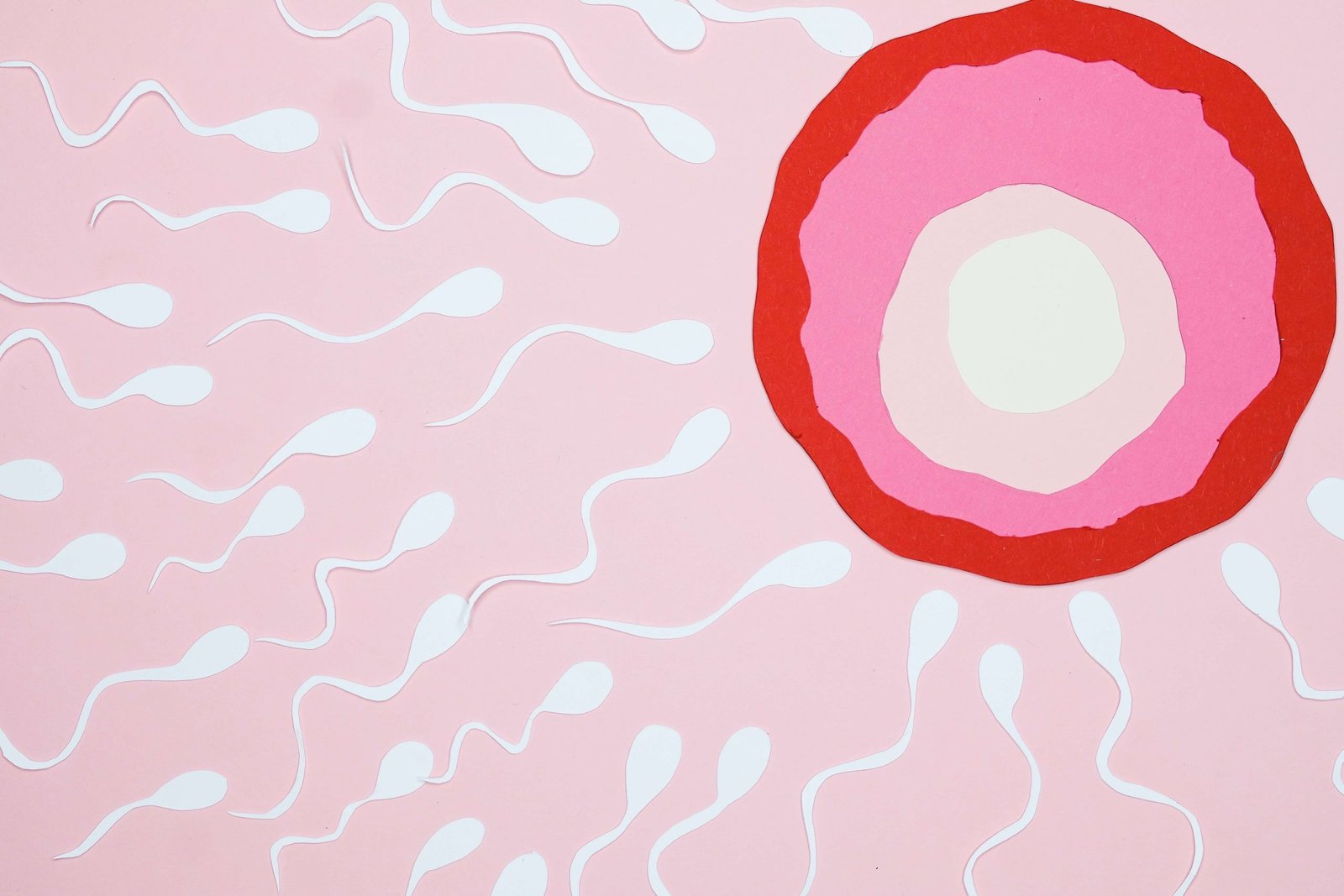Cream pie pregnancy is a topic that has been gaining attention in recent years. The term “cream pie” refers to a sexual act where a man ejaculates inside a woman’s vagina and the semen is visible as it leaks out. While this act is often associated with pornography, it is also a common sexual practice among couples. The question that arises is whether this practice can lead to pregnancy.
Understanding the connection between cream pie and pregnancy requires an understanding of the basics of pregnancy. Pregnancy occurs when a sperm fertilizes an egg. This fertilized egg then implants itself in the lining of the uterus, where it begins to grow and develop into a fetus. While the chances of pregnancy occurring depend on a variety of factors, such as the timing of intercourse and the fertility of both partners, any act of intercourse that involves ejaculation inside the vagina can potentially lead to pregnancy.
 There is no guarantee that a woman will become pregnant as a result of cream pie, the practice does carry some risks. For example, if the woman is not using contraception, there is a chance that she could become pregnant. If the man has a sexually transmitted infection (STI), there is a risk of passing the infection to the woman
There is no guarantee that a woman will become pregnant as a result of cream pie, the practice does carry some risks. For example, if the woman is not using contraception, there is a chance that she could become pregnant. If the man has a sexually transmitted infection (STI), there is a risk of passing the infection to the woman
Understanding Cream Pies Pregnancy
Cream pie pregnancy is a term used to describe a sexual act where a man ejaculates inside a woman’s vagina. This act is also known as a “creampie.” The term “cream pie” comes from the visual similarity between the appearance of semen and cream filling in a pie.
While cream pies are a common sexual act, they can pose some risks. The biggest risk associated with cream pies is the possibility of pregnancy. When a man ejaculates inside a woman’s vagina, there is a chance that his sperm will fertilize one of her eggs, resulting in pregnancy.
Cream pies can also increase the risk of sexually transmitted infections (STIs). When a man ejaculates inside a woman’s vagina, any STIs he may have can be transmitted to her. This is why it’s crucial to use protection during sexual activity to reduce the risk of STIs.
If a woman wants to avoid pregnancy, she should use contraception. There are many different types of contraception available, such as condoms, birth control pills, and intrauterine devices (IUDs). The right type of contraception for your needs and to use it correctly to prevent unwanted pregnancy.
Pregnancy Basics
Pregnancy is a complex and exciting time for expectant parents. It is a journey that lasts for approximately 40 weeks, divided into three trimesters. During this period, the body undergoes numerous changes to accommodate the growing fetus.
The first trimester is marked by rapid changes for both the mother and the baby. Physical changes for the mother might include breast tenderness, fatigue, and nausea. Emotions might range from excitement to anxiety. For the baby, the first trimester is a time of rapid growth and development. Maintaining a healthy diet and lifestyle during this period supports the baby’s growth and development.
The second trimester is often referred to as the “honeymoon period.” The mother typically feels better during this period as the nausea and fatigue subside. The baby’s development continues, and the mother may feel the first movements of the baby. It is necessary to continue with a healthy diet and lifestyle during this period.
The third trimester is marked by the baby’s continued growth and development. The mother’s body continues to change as the baby prepares for delivery. Monitor the baby’s movements during this period and attend all prenatal appointments. The mother may experience Braxton Hicks contractions, which are normal and prepare the body for labor.
Causes of Cream Pie Pregnancy
Pregnancy occurs when semen is ejaculated inside a woman’s vagina during sex. This can happen when a man does not use a condom or when the condom fails. The failure of contraception methods, such as birth control pills, intrauterine devices (IUDs), and condoms, can also cause pregnancy. Unprotected sex is a leading cause of this type of pregnancy as it increases the chances of sperm reaching and fertilizing the egg.
Risks and Concerns
Cream pie can have serious risks and concerns for the mother. The most significant risk is an unwanted pregnancy that can have significant psychological and emotional effects on the mother. It can lead to an increased risk of sexually transmitted infections (STIs) if the partner has an infection. If left untreated, STIs can cause long-term health problems such as infertility, pelvic inflammatory disease, and even cancer.
Symptoms of Cream Pie Pregnancy
The symptoms can vary from woman to woman, and some may not experience any symptoms until several weeks or months into the pregnancy. The most common symptoms include missed periods, nausea, vomiting, and fatigue. Women may also experience tender breasts, frequent urination, mood swings, and food cravings. These symptoms are similar to those experienced during a regular pregnancy, and it is essential to seek medical attention if any of these symptoms occur.
Testing and Diagnosis
The most common way to test for cream pie pregnancy is through a home pregnancy test, such as the Wondfo pregnancy test and Dye Stealer pregnancy test which is readily available over the counter. Another way to diagnose is through a blood test, which can detect pregnancy hormones in the bloodstream. Ultrasound scans can also confirm the pregnancy, determine the due date, and monitor the health of the fetus.
Treatment Options
The treatment options for pregnancy gotten from cream pie depend on the mother’s preference. If the pregnancy is wanted, the mother can continue with the pregnancy and seek prenatal care. Prenatal care is essential for all pregnant women, and it involves regular check-ups, monitoring the health of the fetus, and receiving advice on how to have a healthy pregnancy. On the other hand, if the pregnancy is unwanted, she can choose to terminate the pregnancy through medical or surgical abortion. Medical abortion involves taking pills to induce abortion, while surgical abortion involves a minor surgical procedure to remove the fetus. It is crucial to seek medical attention from a qualified healthcare provider to discuss the options and potential risks.
Support and Resources
Counseling and medical care can help women make informed decisions about their pregnancy and provide emotional support. Support groups for pregnant women can also be helpful, as they provide a safe and supportive environment to share experiences and receive advice. Online resources are also available, providing education and advice on cream pie pregnancy and related issues.
Pros and Cons
Pros
- Cream pie can be a way of enjoyment for couples
- Women have the option of terminating an unwanted pregnancy.
Cons
- Cream pie pregnancy can result in unwanted pregnancy.
- Increases the risk of sexually transmitted infections if the partner has an infection
Frequently Asked Questions
[sp_easyaccordion id=”313″]
Conclusion
Cream pie pregnancy is an informal term used to describe an unplanned pregnancy resulting from ejaculation inside the vagina during unprotected intercourse. While it may be a surprising and unexpected event, couples and individuals must be aware of the risks and benefits associated with this type of pregnancy.
Many factors can influence the outcome of a cream pie, including age, health, and lifestyle choices. Couples and individuals should work together to make informed decisions about their sexual health and contraceptive options to prevent unintended pregnancies.
SOURCES
• Am I Pregnant?. Clevelandclinic.org. Accessed September 12, 2023.
• Signs and symptoms of pregnancy. Nhs.uk. Accessed September 12, 2023.
• Female fertility: Why lifestyle choices count. Moyoclinic.org. Accessed September 12, 2023.
• Semen Analysis and Test Results. Healthline.com. Accessed September 12, 2023.
